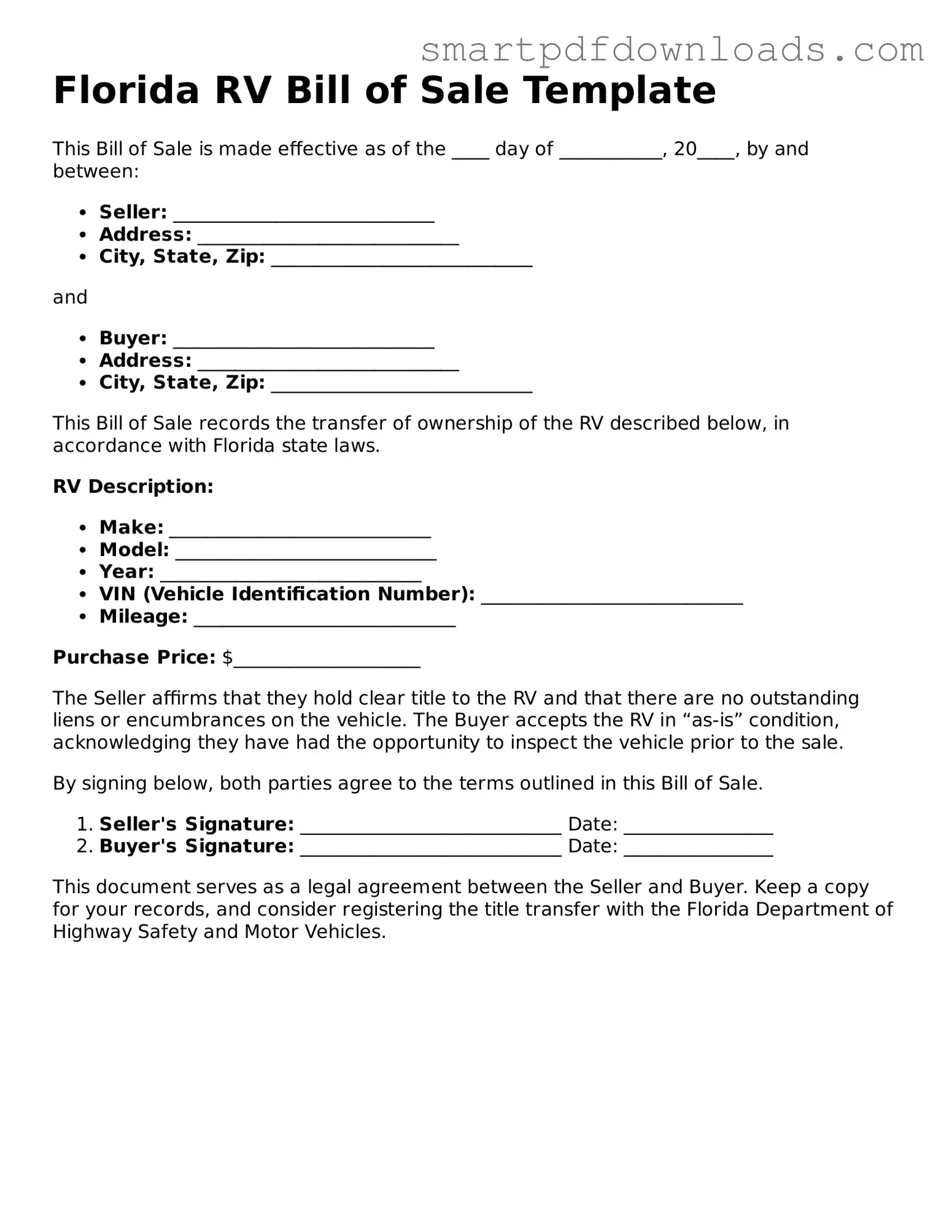Legal RV Bill of Sale Form for the State of Florida
The Florida RV Bill of Sale is a legal document that records the transfer of ownership of a recreational vehicle from one party to another. This form serves as proof of the transaction and outlines essential details such as the vehicle's identification number, sale price, and the names of both the buyer and seller. Understanding this document is crucial for anyone looking to buy or sell an RV in Florida.
Edit RV Bill of Sale Online

Legal RV Bill of Sale Form for the State of Florida
Edit RV Bill of Sale Online

Edit RV Bill of Sale Online
or
⇓ PDF File
Finish the form and move on
Edit RV Bill of Sale online fast, without printing.